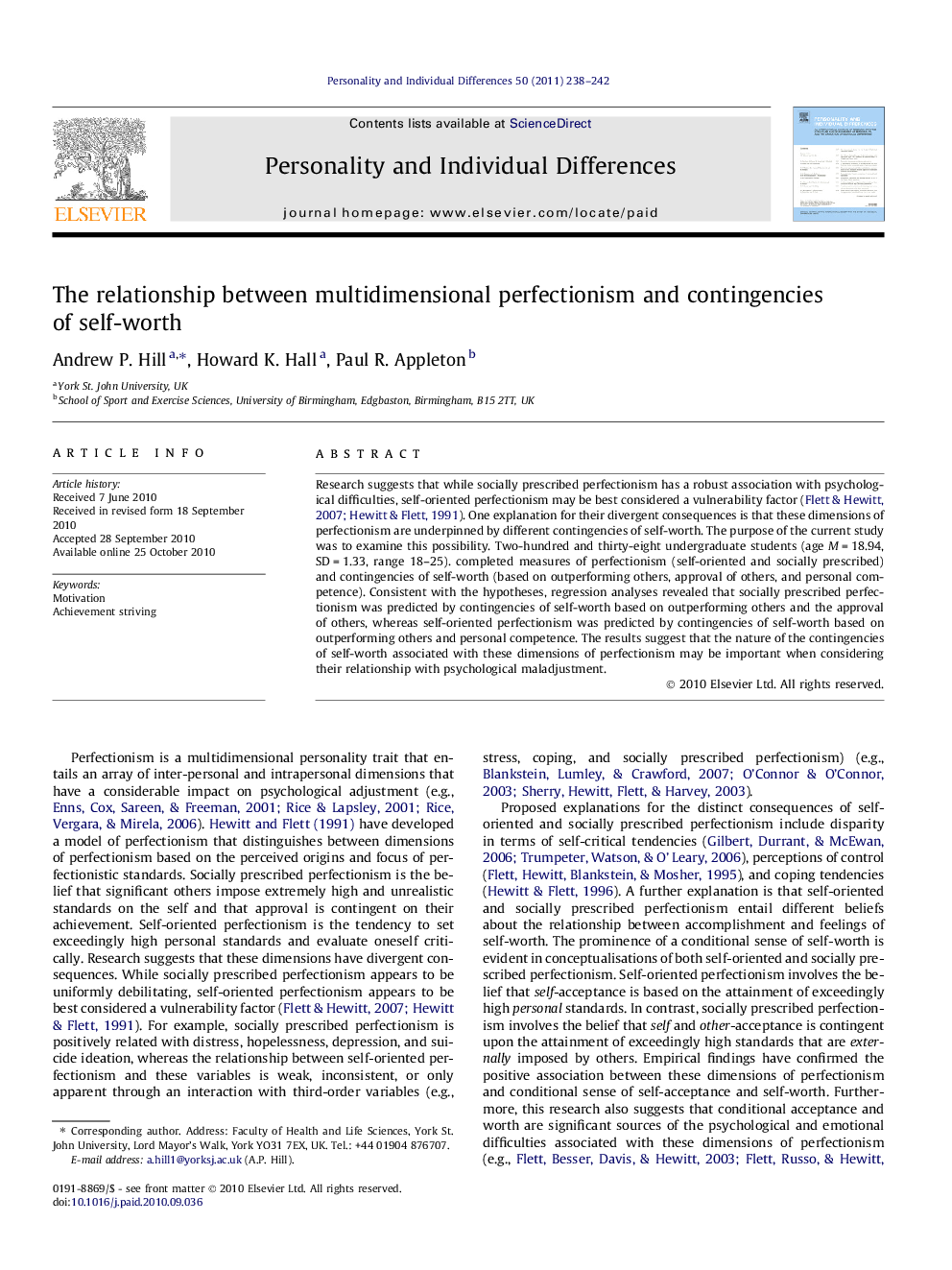| Article ID | Journal | Published Year | Pages | File Type |
|---|---|---|---|---|
| 891775 | Personality and Individual Differences | 2011 | 5 Pages |
Research suggests that while socially prescribed perfectionism has a robust association with psychological difficulties, self-oriented perfectionism may be best considered a vulnerability factor (Flett and Hewitt, 2007 and Hewitt and Flett, 1991). One explanation for their divergent consequences is that these dimensions of perfectionism are underpinned by different contingencies of self-worth. The purpose of the current study was to examine this possibility. Two-hundred and thirty-eight undergraduate students (age M = 18.94, SD = 1.33, range 18–25). completed measures of perfectionism (self-oriented and socially prescribed) and contingencies of self-worth (based on outperforming others, approval of others, and personal competence). Consistent with the hypotheses, regression analyses revealed that socially prescribed perfectionism was predicted by contingencies of self-worth based on outperforming others and the approval of others, whereas self-oriented perfectionism was predicted by contingencies of self-worth based on outperforming others and personal competence. The results suggest that the nature of the contingencies of self-worth associated with these dimensions of perfectionism may be important when considering their relationship with psychological maladjustment.
